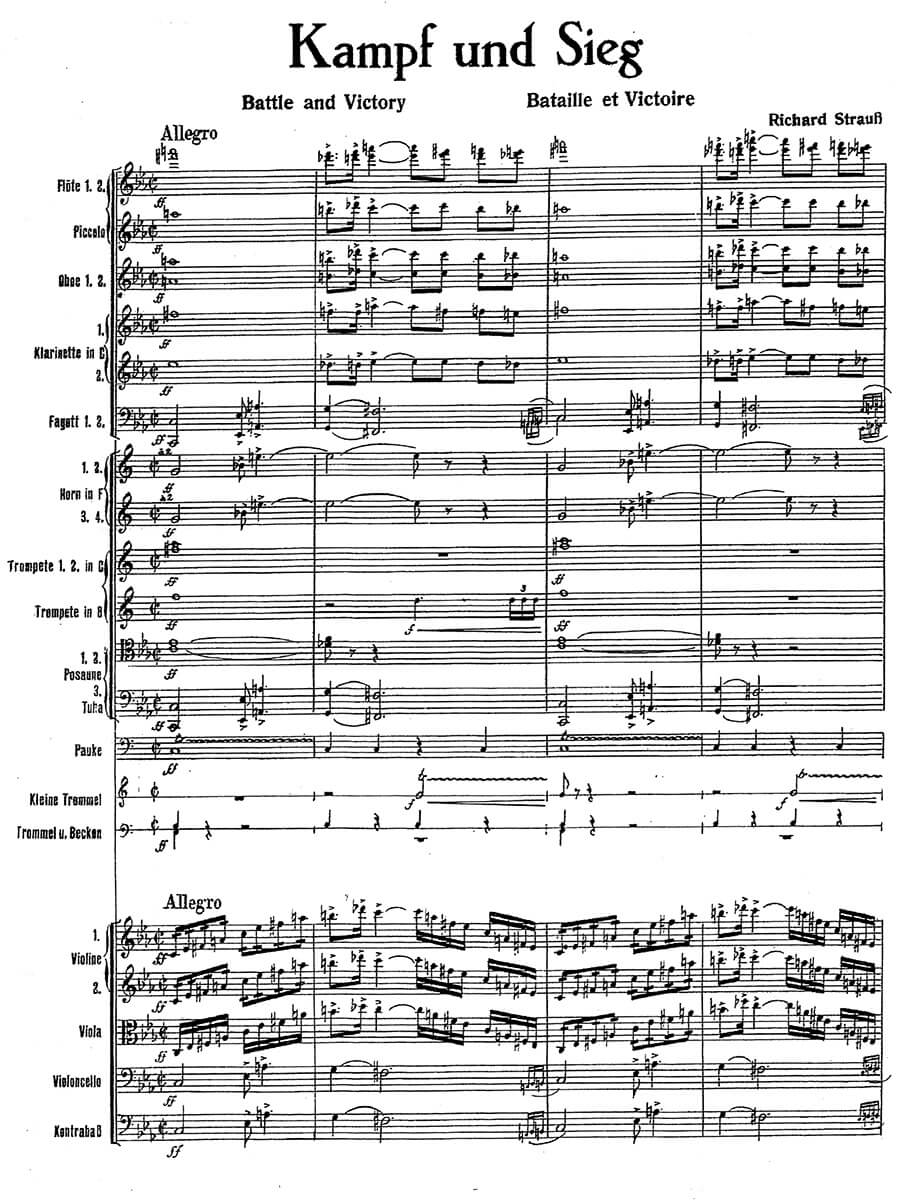Kampf und Sieg (1892) for orchestra
Strauss, Richard
17,00 €
Preface
Richard Strauss – Kampf und Sieg (1892, published 1930)
(b. Munich, 11 June 1864 – d. Garmisch-Partenkirchen, 9 September 1949)
Preface
The little-known piece Kampf und Sieg dates back to 1892 when Strauss was in his late twenties and already well-established as one of Germany’s leading composers. By this year he had completed several large-scale orchestral works, including Aus Italien (1886), Macbeth (1888), Don Juan (1888), and Tod und Verklärung (1889). Strauss in 1892 was principally occupied with his conducting duties as Kapellmeister in Weimar as well as work on his first opera, the ill-fated Guntram (1894). Like his earlier Tondichtungen (symphonic poems), although more modest in scope, Kampf und Sieg is an instrumental composition inspired by an extra-musical source, such as a literary work, historical event, or painting. In this case, Strauss endeavored to aurally depict what is explicit in the title, struggle and victory, with emphasis on the latter. Although relatively brief (six to seven minutes in performance) Kampf und Sieg exemplifies the composer’s musical style through its bold, chromatic harmonies and vivid tone painting. Strauss is known as a skillful orchestrator, and this score is no exception with its layered textures and imaginative combinations of instrumental colors.
Details regarding the genesis of Kampf und Sieg are scant; the work is rarely mentioned in biographies, its performance history is limited, and there are few commercial recordings. We know Strauss wrote the piece for the golden wedding anniversary of Grand Duke Karl Alexander and Princess Sophie of the Netherlands. In this original version, “Kampf und Sieg” was the third of four movements he supplied to accompany tableaux vivants (living pictures), which were presented as part of the lavish festivities. The multi-sectioned work is listed in the composer’s catalog as Lebende Bilder, o.Op. 89 (TrV 167). It should be noted that a few sources claim Strauss was further inspired by the poem Die Kriegsanleihe (The War Bond) by Otto Julius Bierbaum, which celebrates Germany’s victory in the Franco-Prussian War. If this was the case, the evidence no longer survives.
read more / weiterlesen … > HERE
Score Data
| Score Number | 4882 |
|---|---|
| Edition | Repertoire Explorer |
| Genre | Orchestra |
| Pages | 48 |
| Size | 210 x 297 mm |
| Printing | Reprint |
